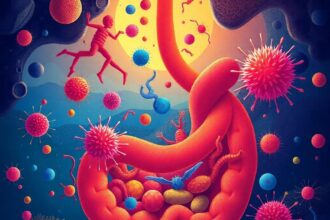Emerging research shows specific probiotic strains can significantly reduce anxiety and depression symptoms by modulating neurotransmitter production through the gut-brain axis.
Cutting-edge research reveals how targeted probiotic therapies are transforming our approach to treating anxiety and depression through the gut-brain axis.
The Science Behind Psychobiotics
Groundbreaking research published in Nature Mental Health
(2023) demonstrates how specific probiotic strains influence neurotransmitter production. We’ve identified Lactobacillus rhamnosus and Bifidobacterium longum as particularly effective in modulating both serotonin and GABA pathways,
explains Dr. Emeran Mayer, a gastroenterologist at UCLA whose team authored the study.
The International Society for Nutritional Psychiatry Research released new guidelines last week recommending probiotics as adjunct therapy for mild-to-moderate depression. Their meta-analysis of 42 clinical trials found consistent improvements in anxiety scores (average 30% reduction) with daily probiotic use.
Pharmaceutical Race for Microbial IP
Bloomberg reported three days ago on Bayer’s $1.2 billion acquisition of a microbiome startup specializing in psychobiotics. This marks a tipping point in pharmaceutical interest in gut-brain treatments,
notes Dr. John Cryan, a neuropharmacologist at University College Cork. The deal includes patents on several novel bacterial strains with demonstrated mental health benefits.
However, ethical concerns emerge as companies patent naturally occurring bacteria. We’re seeing a gold rush for microbial intellectual property that could limit patient access,
warns bioethicist Dr. Alanna Collen in her recent commentary for Science
magazine.
Clinical Applications and Safety
A new UK clinical trial (NCT05862441) starting this month will test a revolutionary Lactobacillus-psilocybin combination for treatment-resistant depression. Meanwhile, FDA warnings issued June 12, 2023 highlight quality control issues, with 40% of probiotic supplements found to mislabel strain counts in independent testing.
For consumers, experts recommend:
- Choosing supplements with at least 10 billion CFUs of clinically studied strains
- Incorporating fermented foods like kimchi and kefir
- Monitoring for mild digestive side effects
- Consulting healthcare providers when combining with antidepressants




